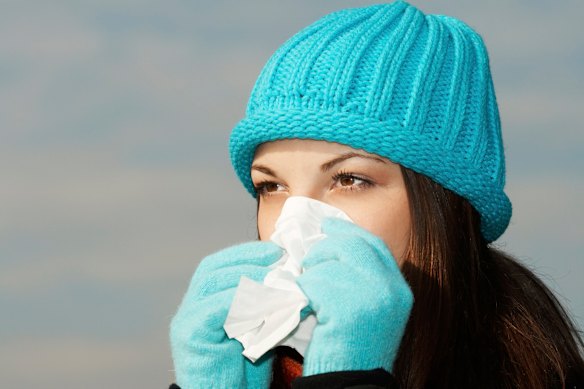
News
August 19, 2025
Why a fake treatment might cure your flu ... and which ones to avoid
Whether your preferred cold remedy is lemon and honey tea, eucalyptus rubs, chicken soup or vitamin C, they probably shouldn’t work. So how are they producing real effects?
**Why a fake treatment might cure your flu ... and which ones to avoid**
That persistent cough, the aching muscles, the general misery of the flu – we've all been there. And when those symptoms hit, many of us reach for comfort in time-honored remedies like steaming cups of lemon and honey tea, soothing eucalyptus rubs, hearty bowls of chicken soup, or a boost of vitamin C. But here's a surprising truth: scientifically speaking, many of these popular treatments probably shouldn't work as well as we think they do. So, how do they end up making us feel better?
The answer lies in the fascinating phenomenon of the placebo effect. This powerful psychological response demonstrates that our bodies and minds are intricately connected. When we believe a treatment will help us, our brains can release natural painkillers, boost our immune system, and even alter our perception of symptoms, leading to genuine relief.
Think about it: the warmth of the tea can soothe a sore throat, the aroma of eucalyptus can help clear nasal passages, and the comfort of chicken soup can provide essential nutrients and hydration. While these remedies might not directly attack the virus causing the flu, they can activate the placebo effect, leading to a reduction in perceived symptoms and a quicker recovery. The act of caring for ourselves, believing we're doing something beneficial, can be incredibly potent.
However, it's crucial to understand the limitations of the placebo effect and to differentiate between harmless comfort measures and potentially dangerous fake treatments. While a soothing cup of tea won't cause harm, relying solely on unproven remedies for serious illnesses can be detrimental.
It's essential to consult with a healthcare professional for proper diagnosis and treatment, especially if symptoms are severe or persistent. Avoid treatments that make exaggerated claims, promise miraculous cures, or lack scientific backing. Be wary of products that are excessively expensive or marketed using manipulative tactics.
Ultimately, understanding the placebo effect can empower us to make informed decisions about our health. While a cup of tea and a good dose of self-care can be beneficial, they should complement, not replace, evidence-based medical advice when dealing with serious illnesses.
That persistent cough, the aching muscles, the general misery of the flu – we've all been there. And when those symptoms hit, many of us reach for comfort in time-honored remedies like steaming cups of lemon and honey tea, soothing eucalyptus rubs, hearty bowls of chicken soup, or a boost of vitamin C. But here's a surprising truth: scientifically speaking, many of these popular treatments probably shouldn't work as well as we think they do. So, how do they end up making us feel better?
The answer lies in the fascinating phenomenon of the placebo effect. This powerful psychological response demonstrates that our bodies and minds are intricately connected. When we believe a treatment will help us, our brains can release natural painkillers, boost our immune system, and even alter our perception of symptoms, leading to genuine relief.
Think about it: the warmth of the tea can soothe a sore throat, the aroma of eucalyptus can help clear nasal passages, and the comfort of chicken soup can provide essential nutrients and hydration. While these remedies might not directly attack the virus causing the flu, they can activate the placebo effect, leading to a reduction in perceived symptoms and a quicker recovery. The act of caring for ourselves, believing we're doing something beneficial, can be incredibly potent.
However, it's crucial to understand the limitations of the placebo effect and to differentiate between harmless comfort measures and potentially dangerous fake treatments. While a soothing cup of tea won't cause harm, relying solely on unproven remedies for serious illnesses can be detrimental.
It's essential to consult with a healthcare professional for proper diagnosis and treatment, especially if symptoms are severe or persistent. Avoid treatments that make exaggerated claims, promise miraculous cures, or lack scientific backing. Be wary of products that are excessively expensive or marketed using manipulative tactics.
Ultimately, understanding the placebo effect can empower us to make informed decisions about our health. While a cup of tea and a good dose of self-care can be beneficial, they should complement, not replace, evidence-based medical advice when dealing with serious illnesses.
Category:
Entertainment